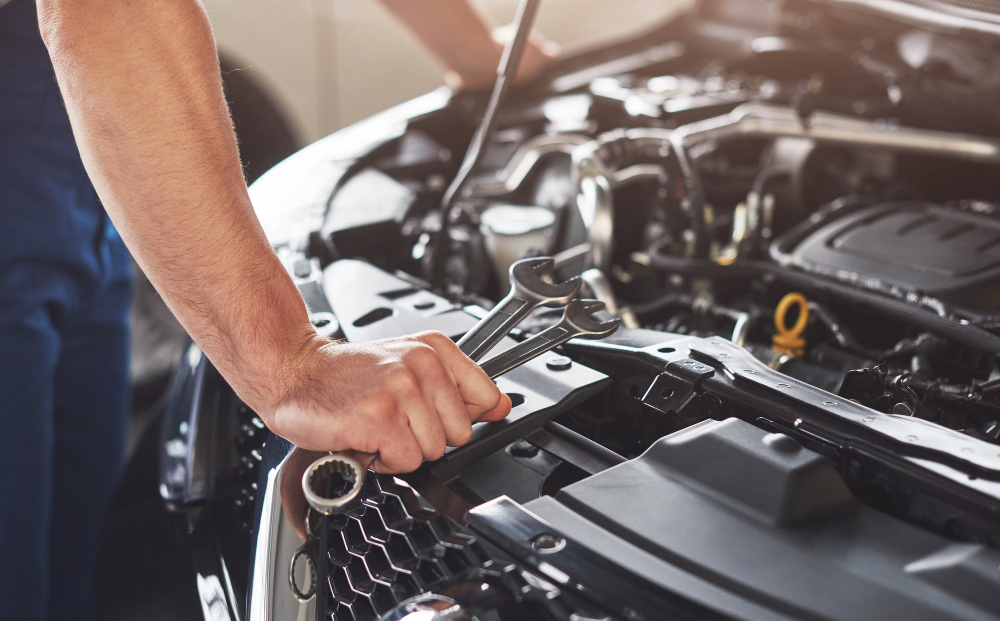
The world of cars and auto maintenance is filled with myths and misconceptions. With so much information available, getting caught up in the confusion is easy. This blog aims to debunk common misconceptions and reveal the truth behind them. By dispelling these misconceptions, we can navigate the world of motoring with confidence, ensuring our vehicles remain in top shape and providing us with smooth and reliable rides for years to come.
1. Myth: Premium Fuel Improves Performance for All Cars
Truth: Premium fuel is often associated with better performance but is not always necessary. As the manufacturer recommends, most vehicles are designed to run perfectly fine on regular unleaded gasoline. Unless your car requires explicitly premium fuel or has a high-performance engine, using it won't provide any significant benefits. Stick to the fuel type recommended in your car's manual to avoid unnecessary expenses.
2.Myth: Letting the Engine Idle Helps Warm Up the Car
Truth: In the past, letting a car idle before driving was common practice to warm up the engine. However, modern machines are designed to warm up quickly even when driving. Idling for an extended period not only wastes fuel but also increases pollution. The best way to warm up your car is to drive it gently for the first few minutes, allowing the engine to reach its optimal operating temperature efficiently.
3. Myth: Regular Oil Changes Every 3,000 Miles Are Necessary
Truth: The 3,000-mile oil change rule is outdated and no longer applicable to most cars. Thanks to oil and engine technology advancements, many vehicles can go longer between oil changes. Check your car's manual for the manufacturer's recommended oil change interval, typically between 5,000 and 7,500 miles. Following the appropriate interval saves money, reduces waste, and maintains engine performance.
4. Myth: Changing the Air Filter Improves Fuel Efficiency
Truth: While a clogged or dirty air filter can affect engine performance, changing it regularly doesn't directly improve fuel efficiency. Modern fuel injection systems adjust the air-to-fuel ratio automatically, compensating for minor restrictions caused by a slightly dirty air filter. However, a severely clogged air filter can hinder performance, reducing acceleration and power. Replace the air filter as the manufacturer recommends to ensure optimal engine health.
5. Myth: More Engine Oil Means Better Lubrication and Protection
Truth: Engine oil is carefully engineered to provide the right viscosity and lubrication for your car's engine. Adding extra oil beyond the recommended level won't improve lubrication; it can cause harm. Excess oil can increase pressure, foam formation, and leaks. Always maintain the oil level within the specified range indicated on the dipstick or by following the manufacturer's guidelines.
6. Myth: Washing Your Car in Direct Sunlight Can Damage the Paint
Truth: Washing your car in direct sunlight won't damage the paint, but it can make cleaning more challenging. High temperatures can cause the water and cleaning solutions to evaporate quickly, leaving residue and streaks on the surface. To avoid this, wash your car in a shaded area or during cooler parts of the day. Use proper car wash products and techniques to maintain your vehicle's appearance.
In the cars and auto maintenance world, it's essential to separate fact from fiction. By unraveling common motoring misconceptions, we can make better decisions regarding fuel choices, maintenance schedules, parts replacements, and other aspects of car ownership. Always consult your car's manual, reputable sources, and trusted professionals to ensure you have accurate information. Stay informed, you can take better care of your vehicle, extend its lifespan, and enjoy a trouble-free motoring experience.